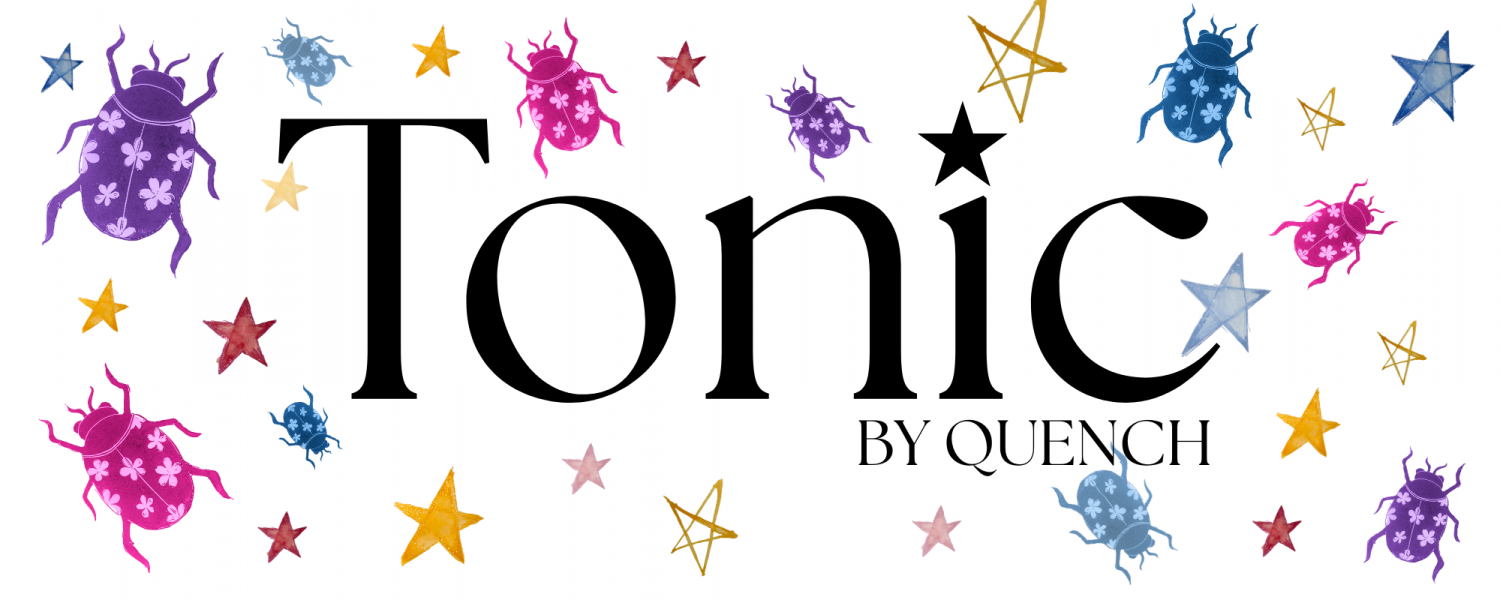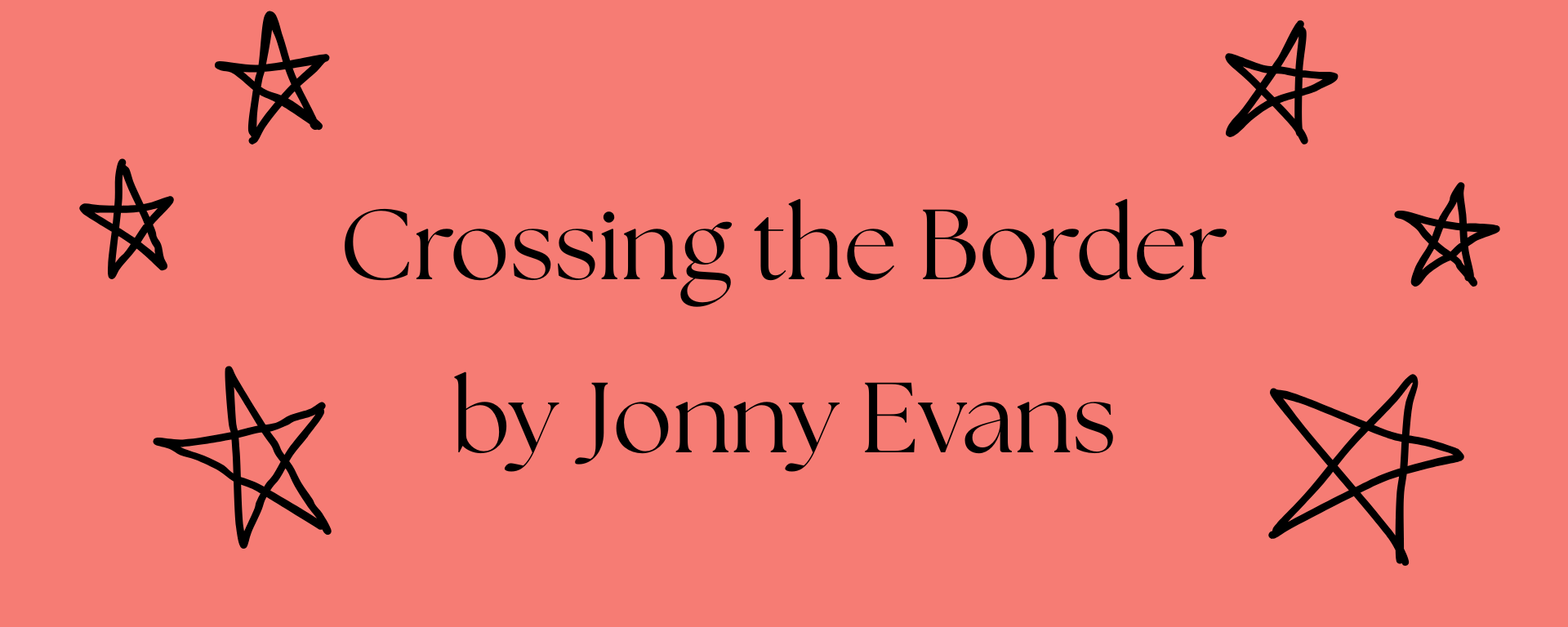Sitting next to Jan in the car as we headed out of Ballyconnell in the republic to cross the border back into the UK – into Northern Ireland – was a surreal experience for me. Jan is one of my oldest friends. She had changed in some ways, yet not in others. Gone was the rich, vibrant, shoulder-length dark hair she used to shake saucily at any guy she fancied. My friend now happily sported a short grey crew cut after shaving it all off for some charity or other. Some things remained, however; the naughty twinkle in the eye and the ready laugh were still there, along with the gently sweet waft of her favourite Dior perfume. That smell always reminds me of Jan.
In June of 2022, I was visiting Ireland for the first time. Spending these few days with her, after so long apart, was a joy. Settling in Ireland two years ago with her husband Anthony, the intermittent messenger videos and texts haven’t been enough to ease those feelings of loss at my friend’s absence.
I’d been planning this trip for months. Jan kept telling me, over the phone, how beautiful and serene Ireland is, how I’d love it, and how I’d adore the locals that she’d acquired as friends. Having never visited before, all I had to go on were those grainy childhood scraps of memories from the TV and newspapers. Ireland had always been for me a place of murder, mayhem, and maiming. Serenity and beauty had never been my idea of Ireland’s reality. Perhaps Alain de Botton is right when he suggests that, ‘the reality of travel is not what we anticipate.’ What Jan was suggesting simply didn’t fit with what I’d seen and believed.
I was wrong. Approaching the border, our small talk centred around small things; how much cheaper a weekly grocery shop is in the UK, and how everyone from the republic bought their petrol in the north. I was humorously told off about the tipsy state I’d got into with the locals the previous night, sitting around the wood burner in the garden, drinking, eating, singing, laughing, and basking in the balmy summer evening, whilst steeped in woodsmoke and welcome.
Small talk aside, as I gazed at this beautifully green, indeed, emerald landscape, dotted with well-kept fields full of cows and the occasional horse, along with locals leaning their elbows on the fence to natter with neighbours at their front gates, I realised that all my conscious perceptions of this place hadn’t prepared me for the reality of it.
Jan cut across the reverie. “We need some veg for my lasagne”, she announced, as the car pulled across Ballyconnel High Street to stand outside the village grocers, ostentatiously labelled Kennedy’s Supermarket. The small shop window was stuffed with carrots, potatoes, parsnips, swede and cauliflowers, along with a huge array of salad makings. The garrulous, flat-capped proprietor, smiling through his rumpled, weather-worn face, waved his good morning to Jan whilst leaning nonchalantly on a veg box by the front door. This wasn’t my idea of a supermarket. A deep sense of pervasive conviviality and calm exuded from this winding, quiet, yet bustling high street. It wasn’t what I’d expected.
Images from my youth – bombs exploding, bloodied shoppers, black-masked IRA fighters parading their hatred of the British along with squaddies sullenly patrolling the lanes and checkpoints – hadn’t prepared me for the sense of serenity that this place exudes. Country roads meandered us from the relative bustle of Ballyconnell, through pristine villages that convey a sense of the deepest peace and settled calm. Whitewashed stone cottages with window boxes bursting with colour nestled on the roadsides and gifted me with aromas of lavender, honeysuckle, and fresh-cut lawns. Passing along the N87 and heading north through the sleepy hamlet of Swanlinbar, we left behind its postcard cottages, its tiny village store presenting a vast array of seasonal veg for sale, and the inevitable squat, granite church.
Anticipating our shopping trip to Enniskillen, Jan and I had talked about crossing the border the evening before, sharing memories of growing up in England as the war in Ireland raged. We both remembered the awful day, on the 8th of November 1987 when, as hundreds of people made their way to the centre of Enniskillen to remember the dead of past wars, at 10.43 am, a bomb exploded at the war memorial. Vividly, my memory replayed the devastated faces of people smeared with blood, running in panic from the scene, mothers desperately holding onto screaming children wailing their horror through the dust, while soldiers and St. John Ambulance volunteers tried heroically to help those who were injured. Eleven souls had died that day – sons, mothers, brothers, fathers, sisters – leaving behind the searing pain of bereavement.
As Jan drove us through the small village of Edenmore with its narrow road bridge over a cutting, these thoughts were in my mind again; the colours, the sights, and the human misery were as vivid as when I’d first seen them on TV.
“That was the border”, Jan informed me. “We’re in the UK now”, she added, smiling at my surprise.
I was shocked. There was nothing to show a border at all. Within seconds, however, I noticed that, although the landscape – the well-kept gardens, the sense of deep beauty and serenity – hadn’t changed, the road signs were once again familiar to me. The N87 had become the A32 without even taking a breath. Through the sleepy villages of Drumcard and Drumlaghy, before turning right onto the A4 into Enniskillen, I realised that the picture I’d had of this place – the horrors and the hatred – the misery and the pain – that I’d casually accepted as the truth, was simply a two-dimensional mirage.
Parking the car near the junction of Queen Elizabeth Road and East Bridge Street, Jan and I strolled past the numerous nick-nack shops and eateries to stand near the doorway of O’Docherty’s Fine Meats. Jan laughed out loud at the look of vegetarian distaste in my eyes as I caught sight of the pig hind quarters, sheep legs and cow’s thigh’s brazenly adorning O’Docherty’s window. Gazing quietly at the war memorial rising on its pale stone base to dominate the junction, the memories of the horror which had engulfed this bustling town centre had vanished. Only the gruesome slaughter in O’Docherty’s shop window gave any hint of it.
Locals strolled about in the sunshine, smiling, laughing, and waving at the folk they knew. As Jan and I quietly stood with our backs to the butcher’s shop window, watching the locals go about their business, I wondered about the people passing by, searching their faces, scanning their eyes. A small older lady wearing a blue Mac too big for her caught my eye as she deftly crossed the road in front of the war memorial. With her crisp white hair straight from the salon, a touch of red adorning her wise old lips and dragging the little wheeled trolley bag with the tartan stripes, I wondered if she had been here on that day. Had she seen friends, neighbours or loved ones ripped apart by the haunting explosion? Would she welcome being asked about it or would she shrink in horror from the memory? Was there a deep pain, long lived with, yet put to bed behind those smiling eyes? As the lady passed, noticing my scrutiny, her eyes locked for a moment with mine. Raising a wrinkled eyebrow and a half smile, the eyes moved on, leaving me with an understanding, at last, that the grainy TV memories were real; the people were real; they were here.
It was a fleeting moment of human connection on this sunny, calm June morning in Enniskillen. Only the stark, frozen grandeur of the bronze First World War soldier, mounted on his ochre blood-red plinth, cast his suggestion of sorrows past. Despite his constant vigilance and his reminder, you would never have known that this place had been a scene of such misery. Jan quietly told me that the eleven individually sculpted doves had been added below the bronze soldier in 1991 as a reminder of the eleven souls who had died that morning. Heading back along East Bridge Street for a bite to eat and a coffee at Magee’s Bar, I realised that, for me, Enniskillen, and indeed my perceptions of Ireland, would never be the same again.
Perhaps, as De Botton suggests, the reality of travel is never what we might anticipate. I’d crossed my own border.
Jonny Evans spent many years teaching history to secondary students before moving to Cardiff four years ago to follow the English Lit and Creative Writing BA as a mature student. Now living permanently in Wales and building a life here, Jonny is studying on the Creative Writing MA programme. He has recently enjoyed participating in open mic events and poetry slams. To date, his writing has included experimenting with genres that include poetry, short stories and narrative non-fiction. He aims, in the future, to become a published author of fantasy fiction.

